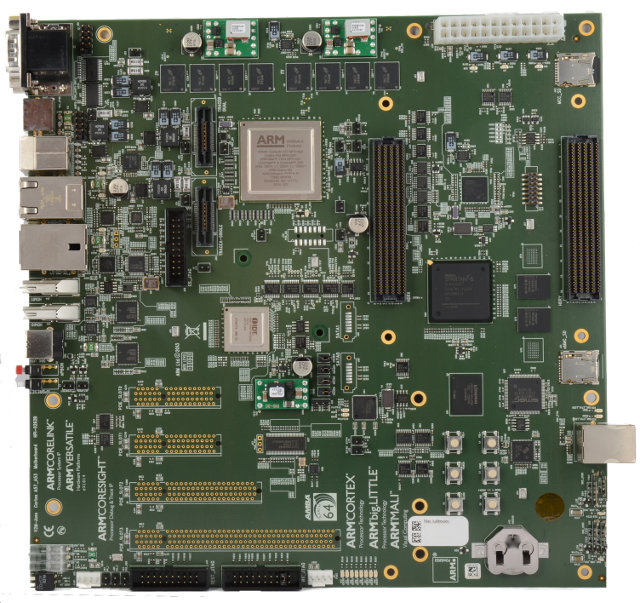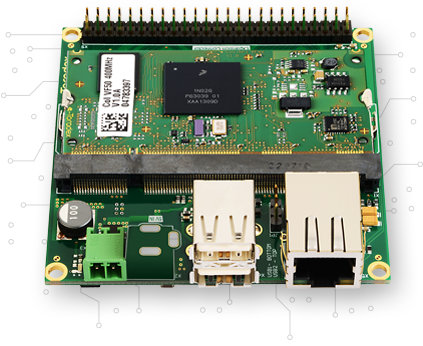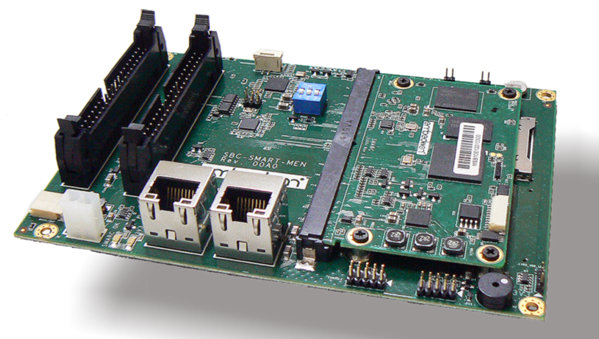Linaro 14.09 has just been released with Linux kernel 3.17-rc4 (baseline), Linux 3.10.54 & 3.14.19 (LSK), and Android 4.4.2 & 4.4.4. Linaro has kept working on their member boards such as IFC6410 (Qualcomm), D01 (Huawei/Hisilicon), Ardnale (Samsung), and Juno (ARM). They’ve also announced they’ll change the tools to build GCC by using cbuild2 instead of cbuild1 for next release, and they’ve enabled a build with gcov (for code coverage analysis) which may mean they’ll work on reducing the kernel size by getting rid off unused code. I’ve also noticed the Arndale and Arndale Octa Ubuntu images are now based on Linux LSK with Mali GPU support since last month. Here are the highlights of this release: Linux Linaro 3.17-rc4-2014.09 GATOR version 5.19 updated topic from Qualcomm LT (ifc6410 board support) and HiSilicon LT updated Versatile Express ARM64 support (FVP Base and Foundation models, Juno) from ARM LT. updated Versatile Express […]
Linaro 14.08 Release with Kernel 3.16 and Android 4.4.4
I’m a little late for that one, as Linaro 14.08 was released last Thursday. Nevertheless, this release features Linux kernel 3.16 (baseline), Linux 3.10.52 (LSK), and Android 4.4.4. As usual Linaro has worked on member hardware such as Qualcomm based IFC6410 and ARM Juno &Vexpress boards. They’ve also committed changes for LLVM, big Endian, and added a workload generator tool (rt-app) to the Ubuntu and Android image. This tool has been developed and used by the power management working group, presumably to measure and optimize power consumption under various loads. Here are the highlights of this release: Linux Linaro 3.16-2014.08 GATOR version 5.19 (new version) updated topic from Qualcomm LT (ifc6410 board support) updated Versatile Express ARM64 support (FVP Base and Foundation models, Juno) from ARM LT (Landing Team) updated Versatile Express patches from ARM LT updated LLVM topic (follows the community llvmlinux-latest branch) Big endian support (the 2014.05 topic […]
Embedded Linux Conference Europe 2014 Schedule – IoT, ARM vs x86, Optimization, Power Management, Debugging…
The Embedded Linux Conference Europe (ELC 2014), CloudOpen, and LinuxCon Europe will jointly take place at the Congress Centre Düsseldorf, in Germany on October 13 – 15, 2014. The 3-day events will consists of keynotes, presentations, and tutorials. Each day will open with two or three keynotes by speakers including Jim Zemlin (Executive Director, Linux Foundation), and Jono Bacon (XPRIZE), followed by presentation and tutorials. There will be 45 presentations for ELCE, 58 for LinuxCon, and 47 for CloudOpen, I’ll make a virtual schedule with a few sessions part of the Embedded Linux Conference Europe “track”. Monday, October 13 11:15 – 12:05 – Performance Analysis Using the Perf Suite by Mans Rullgar, Consultant When faced with a performance problem, the initial steps towards a solution include identifying the sections of code responsible and the precise reasons they are time-consuming. To this end, the ‘perf’ profiling tools provide valuable insight into the […]
Linaro 14.07 Release with Linux Kernel 3.16 and Android 4.4
Linaro 14.07 has just been released with Linux Kernel 3.16-rc6 (baseline), Linux Kernel 3.10.50 (LSK), and Android 4.4.4. This month, Linaro has continued development on Juno 64-bit ARM development board, as well as other member boards from Broadcom (Capri), Qualcomm (IFC6410), Hisilicon D01, Samsung (Arndale / Arndale Octa), etc.. Android have been upgraded to version 4.4.4 with images released for Pandaboard, Arndale, Nexus 10, and Nexus 7, built with Linaro GCC 4.9. Here are the highlights of this release: Linux Linaro 3.16-rc6-2014.07 released GATOR version 5.18 (same version as in 2014.04) updated basic Capri board support from Broadcom LT. Good progress in upstreaming the code: now the topic has 21 patch on top of v3.16-rc4 vs 53 patches on top of v3.15 in 2014.06 cycle removed cortex-strings-arm64 topic as the code is accepted into the mainline new topic from Qualcomm LT to add IFC6410 board support updated Versatile Express ARM64 […]
Linaro Announces 64-bit ARM Android Port on Juno ARM Development Platform
Last week, Linaro 14.06 was released and one of the highlights was Android booting on ARMv8 models, but the organization has actually ported Android to a new 64-bit ARM platform. Juno ARM Development Platform is actually software development platform for ARMv8-A, including Juno Versatile Express board and an ARMv8-A reference software port developed by Linaro. Juno VExpress Board has the following key hardware features: SoC – 2x ARM Cortex A57 cores @ 1.1 GHz (2MB L2 cache), 4x Cortex A53 cores @ 850 MHz (1MB L2 cache) in big.LITTLE configuration with Mali-T624 GPU @ 600 MHz. Compliant with SBSA specifications Level 1. I/O FPGA – Xilinx SPARTAN-6 MCU – ARM Cortex M3 for Motherboard Configuration Controller (MCC) System Memory – 8GB DDR3L @ 1600 MHz Storage – User and configuration micro SD card lots, 64MB NOR flash, configuration EEPROM Connectivity – 10/100M Ethernet + 10M “configuration” Ethernet Video Output – […]
Toradex Customized Single Board Computers Powered by Freescale Vybrid and i.MX6 Sell for 39 Euros and Up
Toradex has launched what they call “Customized SBCs” (Single Board Computers) comprised of the usual carrier board an computer-on-module (CoM) combination, using their Apalis & Colibri families. The company offers various combination of Freescale i.MX6 and Vybrid VF50 single board computers, with price starting at 39 Euros for 1k order, or 49 Euros for samples. I’ve already featured Toradex Colibri VF50 (and VF61) modules in another post, but to summarize Colibri VF50 is a computer modules based on Freescale Vybrid VF50 ARM Cortex A5 CPU with 64 to 128MB DDR3, and 128MB NAND flash that targets industrial applications requiring long term availability (15 years). VF50 sells as low as 19 Euros per unit for 10k orders. Viola is a new open source hardware carrier board with the following features: Compatible with all Toradex Colibri CoMs External Storage – microSD interface Video – RGB LCD Interface, 4 wire resistive touch interface […]
Linaro 14.05 Released with Linux Kernel 3.15, Android 4.4.2, and Ubuntu Trusty
Linaro 14.05 has been released with Linux Kernel 3.15-rc5 (baseline), Linux Kernel 3.10.40 (LSK), Android 4.4.2, and Ubuntu has been switched from Saucy to Trusty. More work has been done on big.LITTLE processing and ARMv8 support with notably completing bootstrapping with Debian 64-bit. New hardware platform have started to pop-up such as TI J6-Vayu which must be an evaluation board for Texas Instruments Jacinto 6 dual core Cortex A15 SoC for automotive application, as well as IFC6410, a Snapdragon 600 development board which got a Ubuntu LEB image. This month also marks the first release of Linaro GCC 4.9 toolchain. Here are the highlights of this release: Linux Linaro 3.15-rc5-2014.05 new Android topic (linaro-android-3.15-experimental) uses the resent AOSP code base GATOR version 5.18 (same version as in 2014.04) uprobes topic removed as all patches have been accepted into mainline updated big-LITTLE-pmu topic from ARM LT updated basic Capri board support […]
Embedian SMART MEN and SMART BEE SBCs Feature a TI Sitara SMARC CoM
Embedian, an embedded company specialized in computers-on-module and single board computers, has recently unveiled SMART MEN and SMART BEE single board computers powered by their SMARC-T335X computer-on-module, compliant with the SMARC (Smart Mobility Architecture) standard, and based on Texas Instruments Sitara AM335x SoCs. SMART MEN SBC SMART MEN single board computer specifications: SoC – Texas Instrument Sitara AM335X ARM Cortex-A8 at 600MHz, 800MHz or 1GHz System Memory – 512MB DDR3 (303Mhz x 2) Storage – 4GB eMMC Flash (eMMC 5.0), 4MB SPI NOR Flash, AT24C32 EEPROM, and SDHC/SDIO slot Connectivity – 2 x 10/100 Mbps Ethernet (vertical RJ45) Display – single channel LVDS 18-bit color depth, single channel LVDS 24-bit color depth. LCD LED backlight driver onboard USB – 2 x USB 2.0 Host, 1 x USB 2.0 OTG, 1 x Serial-to-USB (Client) Additional Interfaces: 6 x RS232s (transceiver onboard, two with handshaking and one can be configured as RS422/RS485), […]






